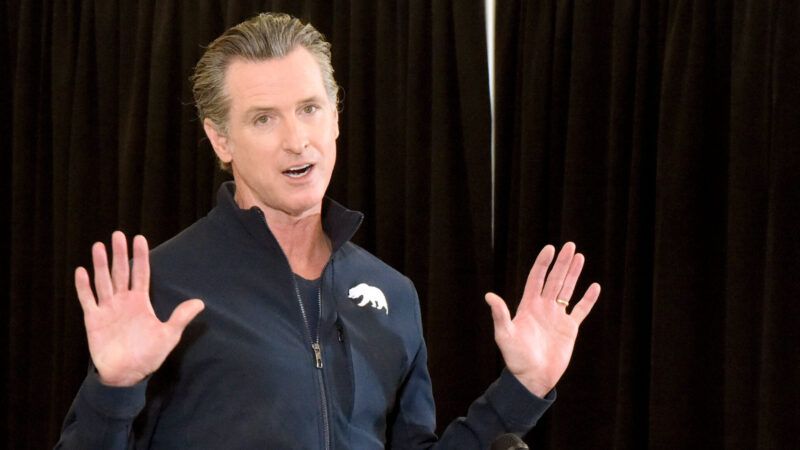COVID-19 Is Leading State Lawmakers To Finally Restrain Governors' Emergency Powers
Even during a pandemic, major changes to laws and policies should be funneled through state assemblies.

The erratic and authoritarian ways governors across the country have responded to the COVID-19 pandemic have prompted state lawmakers to restrain the authority of the executive branch. This is good news for the separation of powers in state government and an opportunity for average folks to reclaim some autonomy.
For people in many states, governors have responded to the pandemic with a complicated and ever-shifting "Hokey Pokey" of demands and bans, many of which appeared to be completely unrelated to the actual science of the spread of the coronavirus. Some decisions, like New York Gov. Andrew Cuomo's demand that nursing homes take in elderly people infected with COVID-19, made the pandemic even worse.
It's supposed to be the province of lawmakers to decide what citizens must and must not do and pass laws that clearly explain these rules so that police and regulators can consistently and fairly apply them.
But governors and agents of the executive branch are given more flexibility to call the shots when an emergency comes around, and we've seen governors flex these emergency powers in harmful and oppressive ways that have failed to even serve their primary goal of stopping the spread of COVID-19. California Gov. Gavin Newsom is finally letting businesses and entertainment venues within the state serve more people indoors, months after Florida's Gov. Ron DeSantis did the same. Yet, the two states ended up with strikingly similar infection and death rates. California citizens have been fighting back and even winning.
Today Nick Niedzwiadek reports at Politico that lawmakers are attempting to recover some of their lost authority to define the rules:
Lawmakers in nearly every state in the country have introduced a combined 300-plus bills this year related to governor's emergency authority or executive action taken during the fight against Covid-19, according to the National Conference of State Legislatures. Only a fraction of those measures are likely to ultimately move out of committee, let alone be enacted into law, but the bills nevertheless reflect the considerable interest in recalibrating governors' emergency authorities.
Niedzwiadek initially frames the dispute as partisan in his lede: Republican Kentucky lawmakers passed several bills to restrain the emergency powers of Democratic Gov. Andrew Beshear. One of the bills limits the duration of the governor's emergency orders to 30 days unless the state's General Assembly approves an extension. Beshear vetoed the bills, but lawmakers overruled him.
But Niedwiadek then quickly expands the view to show that it's not really a partisan divide. Republican and Democratic lawmakers are now increasingly concerned even when somebody from their own party is governor.
Cuomo is an obvious example here. The Democrat-dominated New York Assembly voted in March to strip the governor of his emergency powers in the wake of the scandals consuming his office.
The same is true of Republicans in Ohio, who voted to override a veto by Republican Gov. Mike DeWine and pass a law that allows the Ohio Assembly to rescind standing orders by the state's health department, and creates an oversight and advisory committee to examine emergency health orders.
Governors may complain about this loss of authority, but they should look at California and consider the alternatives. Newsom now faces a recall election, and while partisanship may have initially fueled the effort, the reality is that his office's intrusive and often nonsensical rules on reopening within the state have caused economic harm to many, many citizens. The fact that organizers were able to gather enough signatures to recall a Democratic governor in a state with a Republican Party in deep decline (24.2 percent of voters) is a sign that voters don't want governors misusing their emergency powers for wide-ranging, long-term diktats.
While it may feel like COVID-19 spread like wildfire, long-term policies that alter what is allowed, what is forbidden, and what is mandated should be funneled through legislatures and debated.


Show Comments (19)